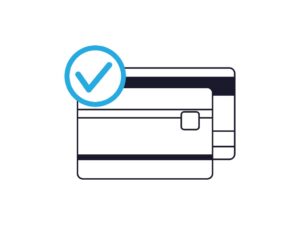- With 10,000 Cards Issued During Pilot, Neobank Lulo Bank Officially Launches Its Credit Cards
The Colombian financial sector adds a new chapter to the race for digital credit. Lulo Bank, the neobank backed by the Gilinski Group, has confirmed that starting in September, it will begin offering credit cards to the general public—following a pilot phase during which it issued more than 10,000 cards to active users. The news was first reported by Bloomberg Línea, which obtained exclusive statements from the bank’s CEO, Ignacio Giraldo.
“We’ve made the decision and will launch our credit card in September to the open market,” said Giraldo in the interview. The announcement marks a key move to strengthen the digital bank’s portfolio, which already boasts over 650,000 customers and is growing by 20,000 users per month.
A Strategy to Expand the Ecosystem
The entry into the credit card business is not an isolated move. It’s part of a vertical integration strategy through which Lulo aims to differentiate itself from other players in the fintech and traditional banking ecosystems. Its flagship product, Lulo Pro, functions as a payroll account with benefits such as 10.5% annual returns, cashback, and investment options—including access to cryptocurrencies.
Additionally, with Lulo X, the bank offers a platform for digital dollar services and cryptoassets such as Bitcoin, Ethereum, Solana, and stablecoins like the digital euro. Users can make domestic and international payments through the app, with projected returns of up to 4% on digital asset investments.
According to Giraldo, the goal is to offer a “complete, flexible banking experience aligned with the digital lifestyle.”
The Competition
Lulo’s entry into the credit card segment heats up competition in one of the most profitable areas of Colombian banking. Nubank, through its Nu Colombia subsidiary, is already one of the country’s leading credit card issuers, even surpassing Banco de Bogotá in terms of active users.
Pibank, backed by the Pichincha Group, also competes with digital offerings focused on zero fees and ease of use. Meanwhile, traditional banks like Bancolombia, Davivienda, and BBVA have been launching virtual cards and low-cost products in response to the fintech wave.
In this context, Lulo Bank enters with the advantage of being the first fully licensed digital bank in Colombia, with its own infrastructure and a strategy that combines traditional financial services with digital assets and customer-centric experiences.
Loans, Insurance, and Long-Term Vision
Beyond credit cards, Lulo has already built a strong operation in the personal loan segment, reaching COP $500 billion in placements. In the business segment, the bank has issued over COP $20 billion in loans and expects to reach COP $50 billion in corporate deposits by August.
In the short term, the plan is to consolidate its portfolio in Colombia with the addition of insurance products for businesses. In the medium term, the goal is to reach break-even and profitability by the end of 2025—allowing the bank to consider entering new Latin American markets or exploring a public listing.
“Once we complete these two stages, we’ll start thinking about the next goal… whether it’s entering a new market or beginning to seek an additional funding round,” said Giraldo.
While Lulo has not confirmed specific dates or locations for international expansion, its roadmap mirrors that of Nubank: solid local market construction, product diversification, and ultimately, an IPO.
For now, Lulo is focused on strengthening its customer base, expanding its digital offering, and staying competitive in rates, benefits, and features. Meanwhile, the market is watching closely as this credit card move reshapes Colombia’s competitive lending landscape.



